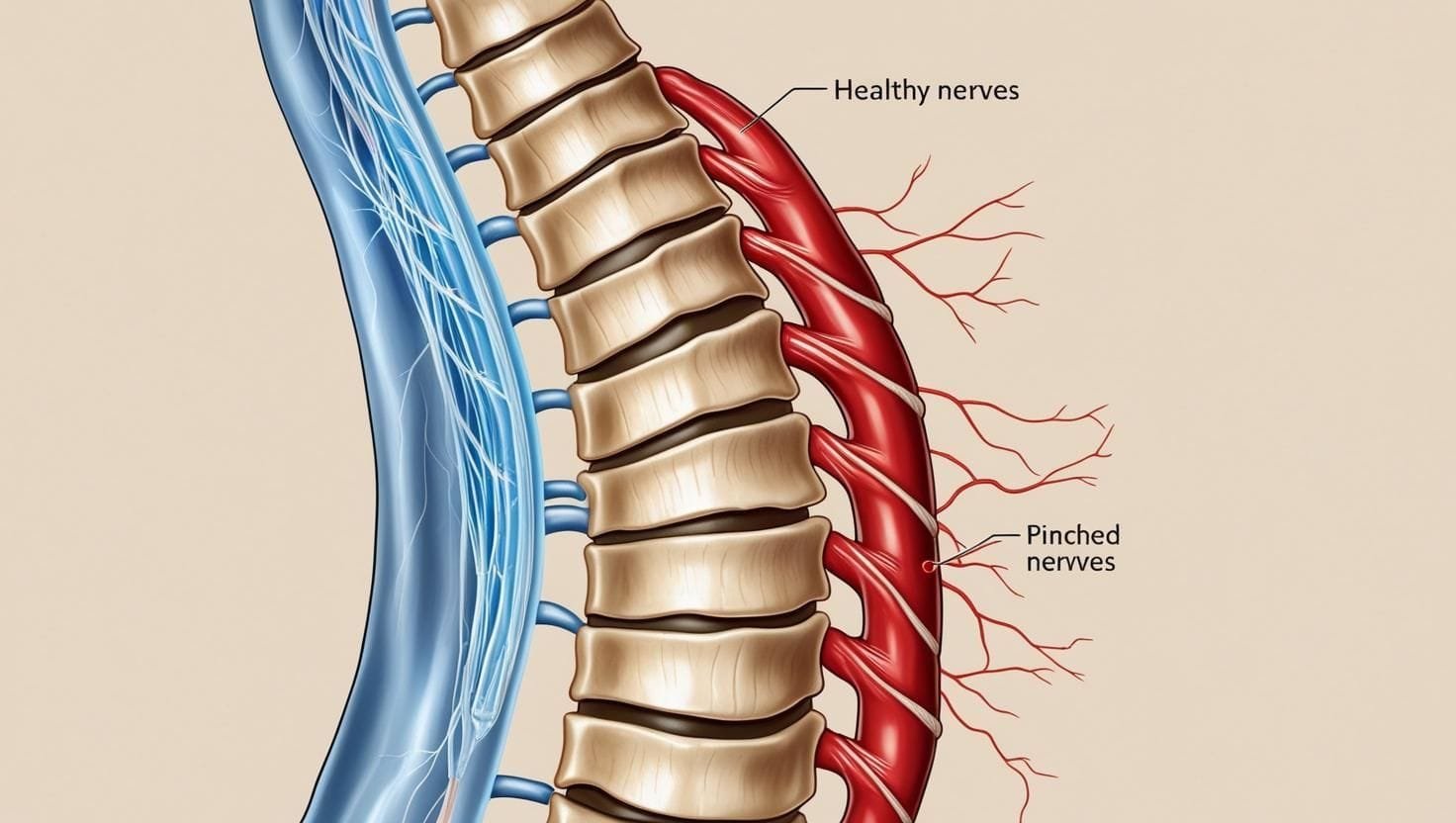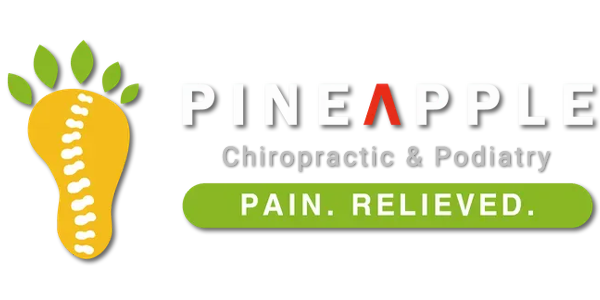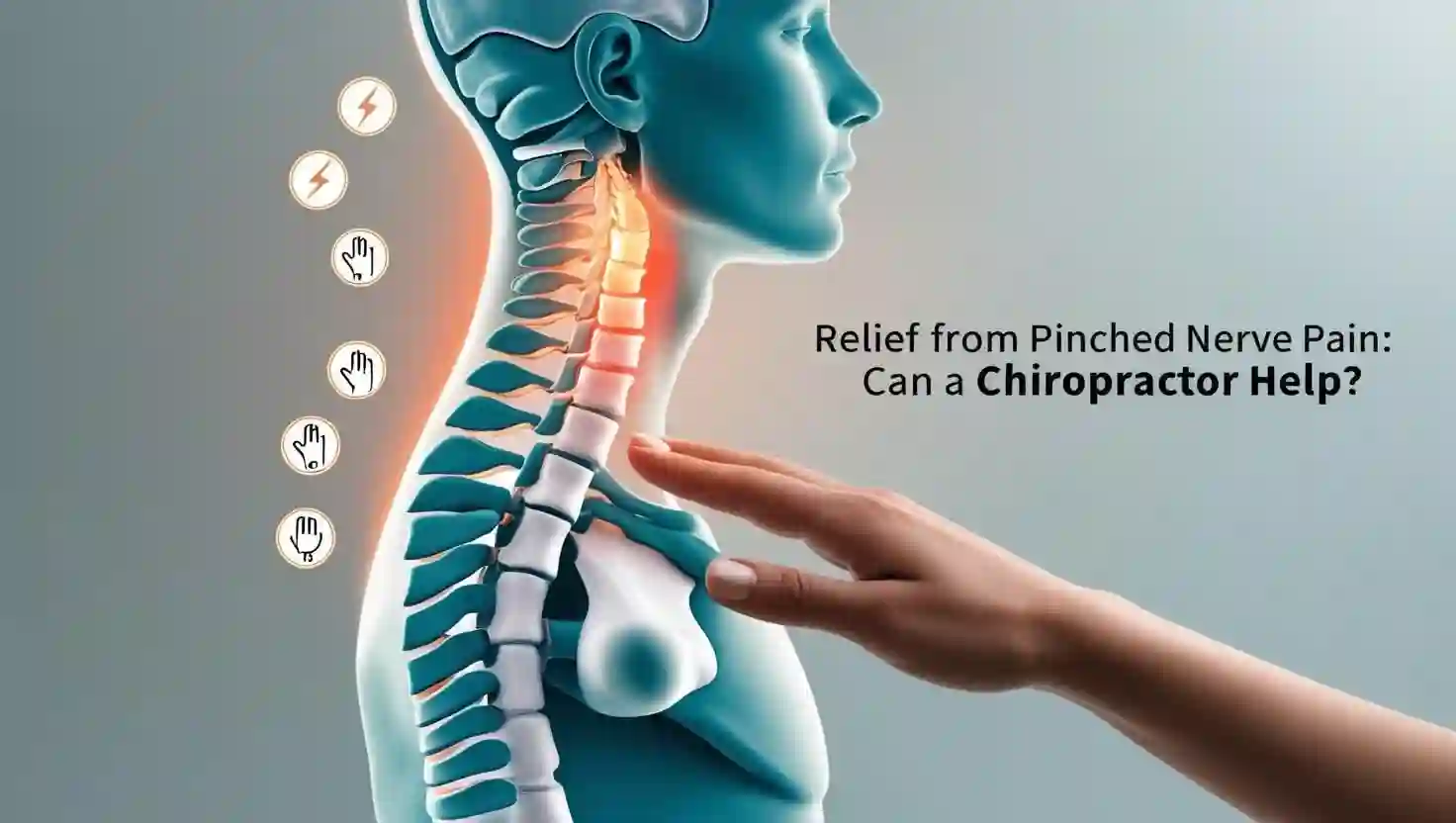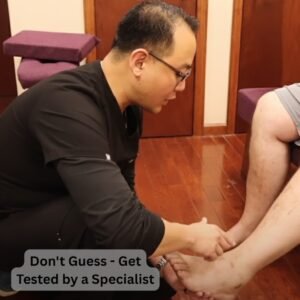
Do you feel a tingling sensation that may come and go through your shoulder, neck, or back? In medical terms, it’s called a pinched nerve. When a nerve is pressured from surrounding tissues, it can cause pain, numbness, weakness, or tingling. Have you experienced this before? You’re not alone. Chiropractic care is a therapy-based treatment that uses no medications, and chiropractors are known for spinal adjustments. Can a chiropractor fix a pinched nerve? The answer is ‘Yes’. Now, let’s explore how a chiropractor fixes a pinched nerve and what the benefits of chiropractic treatment are.
Causes of Pinched Nerve

When a nerve is under pressure and loses its function, a pinched nerve happens. Besides, we’ve made a list of causes of pinched nerves.
- Wrong posture and repetitive movements misalign the spine and cause pinched nerves.
- Accidental injury can slip a spinal disc out of place, which can put pressure on surrounding nerves.
- Arthritis can lead to pinched nerves by causing inflammation in the joints.
- Bone spurs can press on nerves.
- Tight shoes and high heels can pressurize muscles, leading to pinched nerves.
- Long bed rest can sometimes cause pinched nerves.
Symptoms of Pinched Nerve

There are many symptoms of pinched nerves. Experiencing a pinched nerve can be more than just a minor nuisance. The sharp, burning pain or numbness in your neck, back, or limbs can affect your daily life. It might seem like the pain just won’t go away, and that can be really frustrating. But the good news is that chiropractic care can help. It offers a natural, medication-free solution to treating pinched nerves and the symptoms they bring.
Here are some common symptoms
- A sharp, burning pain may be felt in the compressed nerve.
- The nerve supply tingling and numbness.
- Muscle weakness in the nerve.
- You may feel the sensation of falling asleep in your foot or hand.
- Swelling in the affected nerve.
- Skin of the injured area will be discolored.
- Redness can be seen.
Where Do Pinched Nerves Happen?
Pinched nerves can happen in different parts of the body.
Here are some common areas for a pinched nerve
- Neck and shoulder can be affected due to poor posture or arthritis.
- Muscle strain in the lower back can compress nerves and create pain, numbness, and tingling, which can cause sciatica.
- Overuse of hands (like typing) can put pressure on the median nerve, resulting in numbness and weakness in the fingers.
- Elbow bending can put pressure on the ulnar nerve, causing pain in the ring and little fingers.
- Hip compression from muscle tightness can affect nerves and lead to pain and tingling down the legs.
Personal Experience.
Last month, Mr Hardie, one of our patients, experienced the nagging discomfort of a pinched nerve. It started as a small ache in his neck, but soon it turned into sharp, shooting pain down his arm. He didn’t know what was causing it, but our care helped him find relief quickly. The personal experience of chiropractic treatments left a lasting impression on him. It was the natural solution he didn’t even know he needed.
How Do I Prevent Pinched Nerves?
You can prevent pinched nerves by considering these steps
- While sitting, standing, and lifting, you should maintain proper posture. You can use a comfortable chair or pillow if sitting for long periods
- Avoid repetitive movements with the wrist and shoulder because they can put pressure on nerves. Take a break at work.
- To keep muscles active, do regular physical activity. Walking and swimming can help maintain your activity level.
- Avoid lifting heavy weights because it can put high pressure on your spine.
Home Aids for Pinched Nerve
Do you know how easy it is to slip into bad habits when it comes to posture or those long hours spent sitting at a table? These things can really disturbed with your spine and put pressure on nerves. It’s all about making small adjustments to keep things in check and prevent that annoying pain from creeping up on you. You can manage pinched nerve issues at home by following some remedies, including.
- Rest is the best solution for a pinched nerve. It can prevent future injuries.
- Use an ice pack on the affected area for 15-20 minutes to reduce swelling.
- If you have a pinched nerve in your back, you should practice yoga.
- Use a soft, small pillow while sleeping.
- Massaging helps relieve tension and reduce pain. Gentle massage can improve blood circulation.
- Avoid tight clothes such as belts, short shoes, or high heels.
Can a Chiropractor Fix a Pinched Nerve?
The pain of a pinched nerve can feel incredibly limiting. It’s easy to get frustrated when daily tasks become difficult or impossible because of the discomfort. But finding a chiropractor who uses gentle, effective techniques can offer relief. There’s something reassuring about knowing that you don’t have to turn to painkillers or invasive treatments to feel better. Chiropractic adjustment is a drug-free solution for spinal issues. A chiropractor can fix a pinched nerve by using special techniques and manual adjustments.
Now, let’s explore how they fix pinched nerves.
Methods Taken by Chiropractors to Fix Pinched Nerves
In our chiropractic clinic, we typically apply manual adjustments and some instrument-based therapy, including:
Manual Adjustments: Chiropractors use gentle pressure to realign the spine and adjust the joint to relieve compression on pinched nerves.
Active Release Technique (ART): Repetitive use of the wrist and shoulder causes overload and tissue tension. Chiropractors apply Active Release Technique (ART) to relieve overload-related problems such as numbness, muscular weakness, and burning sensations.
Graston Technique: We use manual therapy, like the Graston Technique. This is an instrument-assisted technique that helps break down defective tissue. Chiropractors massage legs with instruments to soften the nerves and strengthen the muscles. This method improves blood circulation.
Myofascial Release Therapy: Chiropractors recognize that pinched nerves can stem from tight fascia, the connective tissue that surrounds muscles. When fascia becomes tight, it can cause pain. Chiropractors apply myofascial release therapy by applying pressure to the fascia to release tension and relax the nerves. This technique reduces pressure on pinched nerves and also lowers the risk of future injuries.
Stretching: We recommend stretching to maintain muscle flexibility. Stretching also relieves stiffness and improves muscle strength, helping prevent injury.
Exercises: Workouts that impact pinched nerves aid in recovery and build strength in the affected muscles. Exercises reduce the risk of reinjury and promote muscle flexibility.
What Are the Benefits of Chiropractic Care for a Pinched Nerve?
Chiropractors help with pinched nerves in the following ways
- Without the use of medication, chiropractic care helps relieve pain.
- The techniques applied by chiropractors are effective in reducing pain and inflammation.
- We always keep in mind that our goal is to help patients perform their daily activities comfortably.
- Chiropractic care is beneficial for athletes, runners, and anyone who wants to enjoy an active lifestyle.
- Chiropractors aim to reduce the risks of future injuries.
Dealing with a chiropractor
If you’re dealing with a pinched nerve, have you thought about seeing a chiropractor? Chiropractic care isn’t just about addressing the immediate pain, but also about treating the underlying causes and preventing future injuries. Our chiropractor Dr Lee is a professional and certified chiropractor. His clinic is in (Pineapple Chiropractic and Podiatry – Clifton) 842 Clifton Ave STE 6
Clifton, NJ 07013 and (Pineapple Chiropractic and Podiatry – New York)150 E 55th St 2nd Floor Suite 4
New York, NY 10022.
The Science Behind Chiropractic Care
Research has shown that chiropractic care can be effective for managing pinched nerves. For example, studies have indicated that spinal manipulation can significantly reduce pain and inflammation, while also improving mobility. Chiropractors commonly combine spinal adjustments with other treatments like Active Release Technique (ART) and Graston therapy to target soft tissue tension and improve circulation, which can further reduce pressure on nerves.
Some research also supports chiropractic care for conditions like sciatica, with evidence suggesting that spinal adjustments may offer results comparable to traditional medical treatments in terms of pain relief and functional improvement.
When to Seek Chiropractic Care vs. Other Treatment Options
While chiropractic care can provide substantial relief, it’s important to first consult a healthcare provider for a proper diagnosis. Chiropractic care may not be suitable for all types of pinched nerves, especially in cases involving certain underlying conditions like tumors, infections, or advanced degeneration. For more severe cases, medical treatments such as physical therapy, corticosteroid injections, or even surgery may be necessary.
Lifestyle Factors: Prevention and Recovery
To help prevent pinched nerves from returning, consider these lifestyle tips
- Posture: Maintaining proper posture is essential for spinal health. Use ergonomic furniture and take breaks from sitting to stretch.
- Exercise: Regular stretching and strengthening exercises for the spine and surrounding muscles can help keep your muscles flexible and prevent nerve compression.
- Diet: A diet rich in anti-inflammatory foods (like omega-3 fatty acids, turmeric, and leafy greens) and vitamins (especially B12 and magnesium) can support nerve health.
The Multidisciplinary Approach to Treating Pinched Nerves
While chiropractic care is an effective treatment, it’s often best used in conjunction with other therapies, such as physical therapy, massage therapy, or medical interventions. Working with a multidisciplinary team ensures that you receive comprehensive care that addresses all aspects of your health, including pain relief, recovery, and prevention.
The End
A pinched nerve is a very painful and uncomfortable condition that affects daily life. It can happen in the neck, shoulder, or back. However, pinched nerves have an effective solution through home remedies and chiropractic care. Chiropractic care can fix pinched nerves by realigning the spine and joints, relieving pressure on pinched nerves, and reducing pain. The therapies they use also help prevent future injuries.
Thank you for reading our blog!
Make an appointment now to solve your problem.







